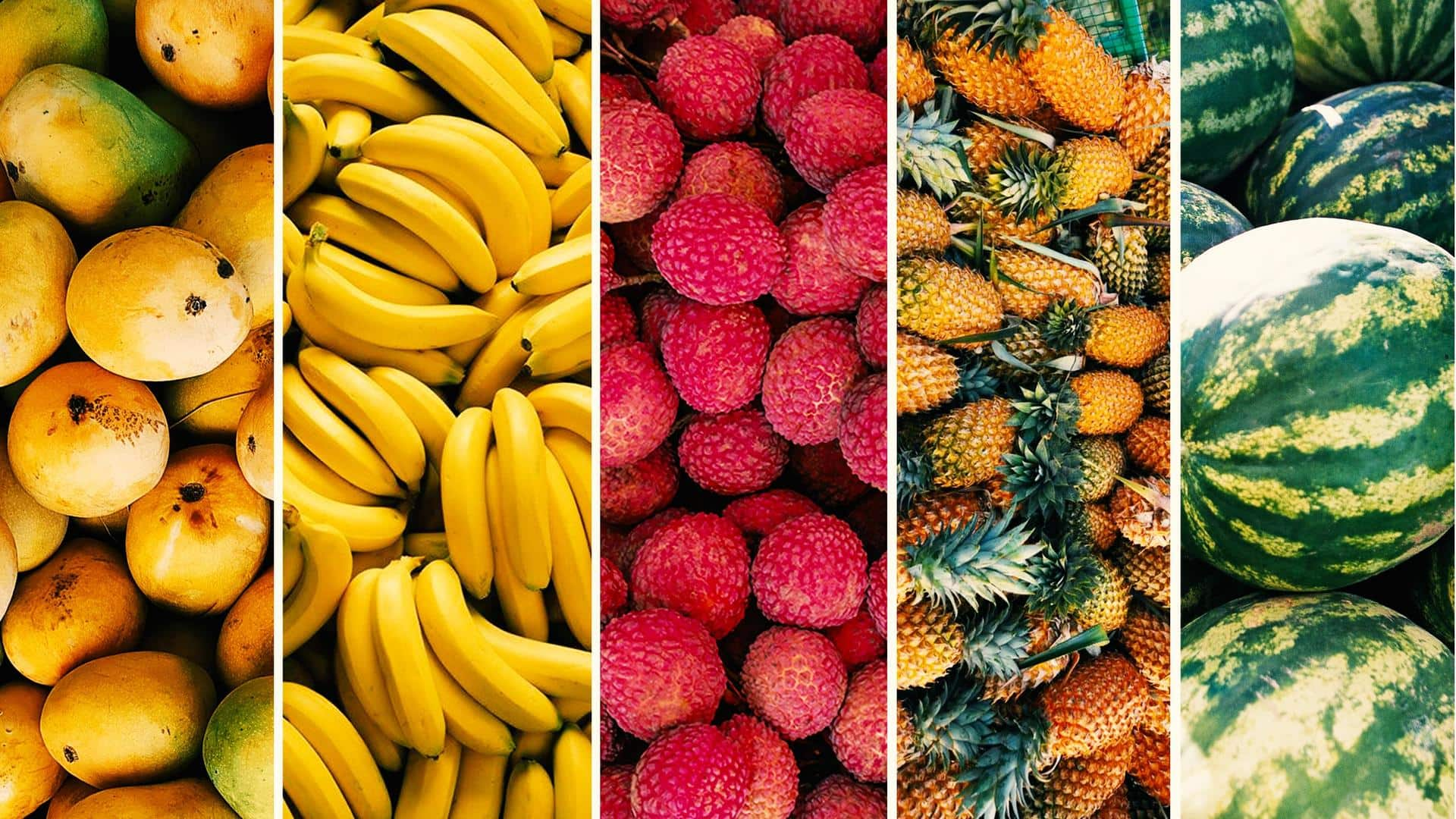
These are the worst fruits for someone with diabetes
What's the story
If you have diabetes, choosing the right fruits is crucial to prevent blood sugar spikes. While fruits are generally healthy, some can have a bigger impact on your blood sugar levels. So, it's important to be wise when picking fruits to keep your sugar levels in check. Here are some fruits that you should either avoid or enjoy in moderation.
Lychee
Lychees
Diabetics should stay away from lychees due to their high sugar content and high glycemic index (GI). These sweet fruits, often used as a sweetener in desserts and cocktails, contain a staggering 29 grams of sugar per serving. This can cause a significant spike in blood glucose levels, making it important for individuals with diabetes to avoid consuming lychees.
Bananas
Bananas
Bananas have a high GI score, which means they can raise your blood sugar quickly. However, you can still enjoy them in moderation. One way to do this is by eating a small banana along with nuts like almonds, pistachios, and walnuts. Another option is mixing bananas with curd, which makes a tasty and filling snack that won't cause big blood sugar spikes.
Mangoes
Mangoes
Even though mangoes are known as the king of fruits and are loved by many, diabetics should be mindful when it comes to mangoes. A single serving of mangoes contains 14 grams of sugar, which can lead to a rapid increase in blood sugar levels for individuals with diabetes. Therefore, it is important to either avoid mangoes altogether or consume them in moderation.
Pineapples
Pineapples
Diabetics should approach pineapple with caution due to its high sugar and carbohydrate content. With approximately 46 grams of sugar and 96 grams of carbs in a single pineapple, it's important to consume this fruit in limited portions. Pineapples offer anti-viral and anti-inflammatory properties, so it's best to eat them in small amounts as part of a healthy diet.
Watermelon
Watermelon
Diabetics can find it challenging to strike a balance with watermelon. Although it is a popular choice during the summer season with its high water content and lycopene, which helps in reducing the risk of cancer and heart disease, it's important to consume it in moderation. Watermelon has a high GI, so eating more than a few pieces at a time is not recommended.